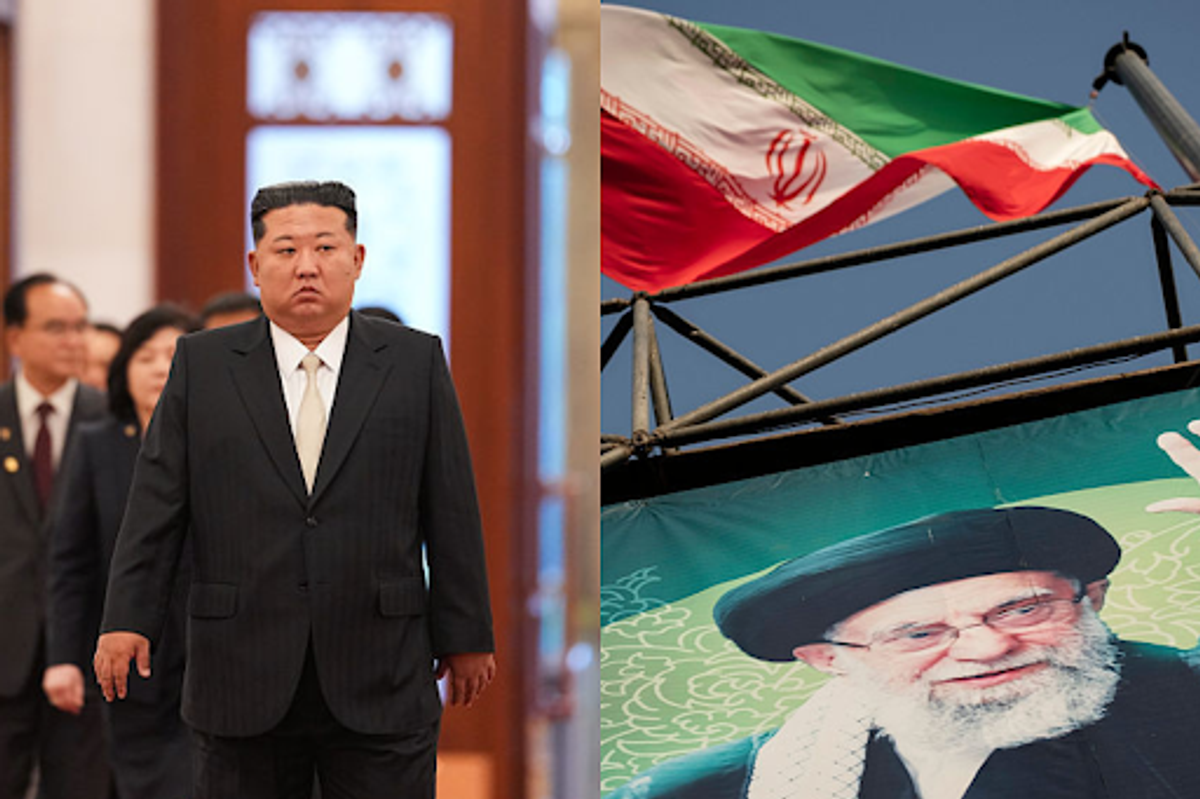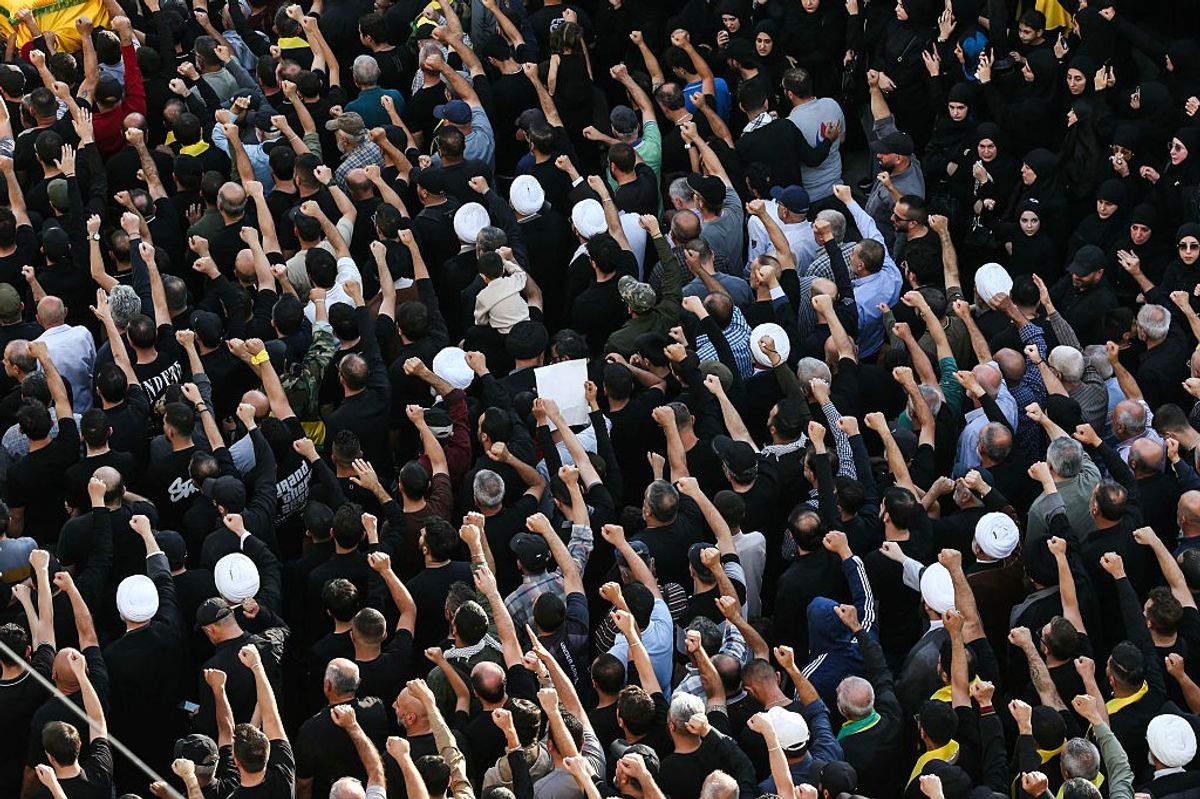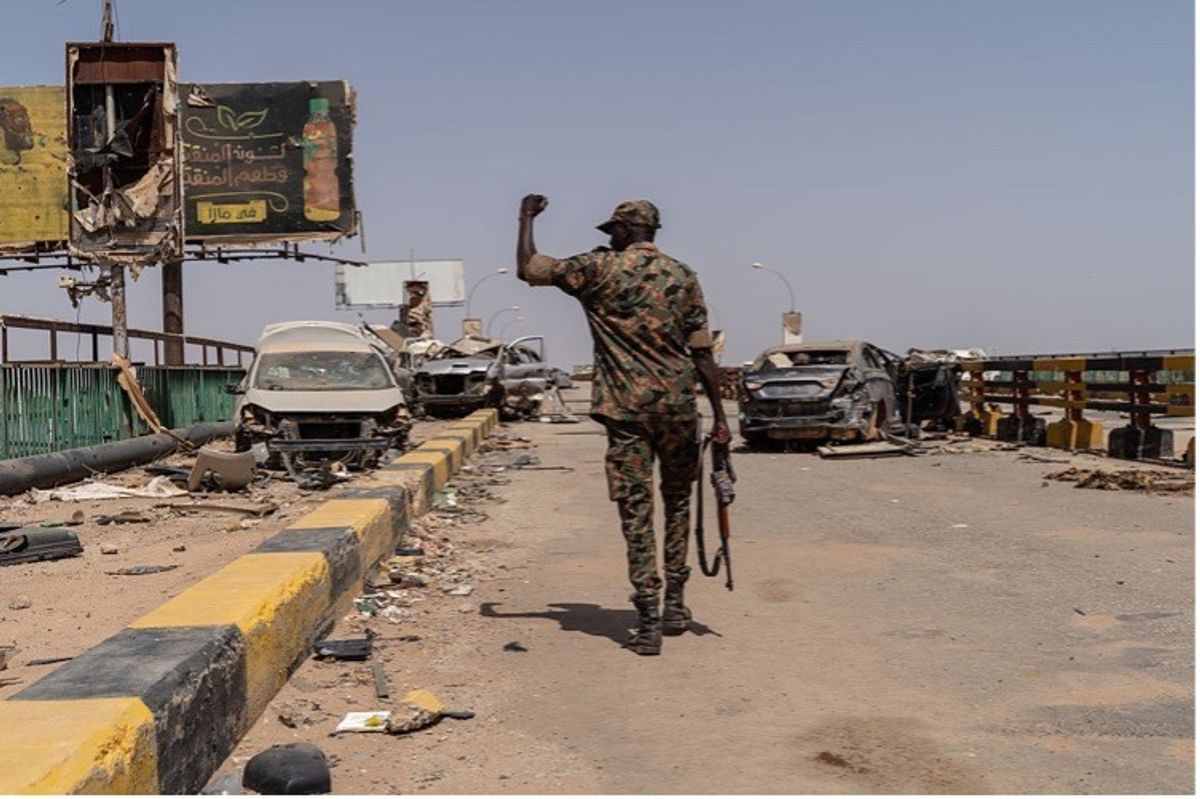EXPERT INTERVIEW— For the past month, the United States military has been carrying out its most robust campaign yet against the Houthi militia, which is based in Yemen and supported by Iran. Since March 15, the U.S. has carried out more than 200 air strikes against targets in Yemen, in a mission that the Pentagon says is aimed at deterring a group that has been firing on commercial vessels in the Red Sea for more than a year, disrupting global commerce in the process.
President Donald Trump said in early April that the campaign has “decimated“ the Houthis, and that the American strikes would continue until the Houthis are “no longer a threat to Freedom of Navigation.” But Pentagon and military officials have reportedly held closed briefings with members of Congress and allied nations saying that the Houthis’ arsenals of missiles, drones and launchers remain largely intact.
There is no question that the latest U.S. mission is larger in scale than anything attempted under the Biden Administration. The cost of munitions alone is believed to be approaching $1 billion, and the attacks have also killed more than 120 civilians, according to the Associated Press. Some experts believe that given the Houthis' history of resistance – against the government they overthrew in Yemen and then against a Saudi-led coalition of forces – the current airstrikes may need to be complemented not only by pressure against Iran, but also diplomacy with China and Russia, which have supported the Houthis through procurement networks.
The current U.S. mission against the Houthis is being carried out by the U.S. Central Command (CENTCOM), and recently The Cipher Brief spoke with a former head of CENTCOM, General Frank McKenzie, for his assessment of the mission to date. Gen. McKenzie said that while the operation won't end quickly, he foresees two potential positive outcomes: "Either we inflict enough pain on the Houthis so that they stop. That would be achieving deterrence and that would probably be the preferred state. Failing that, we simply destroy their capability to conduct these kinds of operations against ships in the Red Sea. That will be a more difficult proposition."
Gen. McKenzie spoke with Cipher Brief Managing Editor Tom Nagorski. The interview has been edited for length and clarity. You can watch it in full at our YouTube channel.
THE CONTEXT
- The Iran-backed Houthis in Yemen began attacking shipping vessels linked to Israel in the Red Sea in November 2023, claiming the attacks were carried out in solidarity with Palestinians in Gaza. The Houthis have attacked more than 100 commercial ships since then, sinking two, seizing one and killing at least four seafarers. The Houthis have also launched missiles and drones at U.S. Navy vessels, which have intercepted dozens of the projectiles.
- The Houthi attacks have disrupted shipping in the Red Sea, forcing many vessels to reroute around southern Africa. Shipping rates have more than doubled as a result.
- Since December 2023, the U.S. has led Operation Prosperity Guardian, a multinational military mission to deter and respond to Houthi attacks on shipping in the Red Sea. The E.U. announced a mission of its own – Operation Aspides – in February 2024.
- In August 2024, Vice Admiral George Wikoff, Commander of U.S. Naval Forces Central Command, U.S. Fifth Fleet, said that airstrikes to that point had not deterred the Houthis, asserting that a solution “is not going to come at the end of a weapons system.”
- President Donald Trump launched a renewed U.S. airstrike campaign against the Houthis on March 15, 2025. He has said the Houthis will be “completely annihilated” and warned Iran to “immediately” stop supporting the group.
- The latest Houthi strikes were the subject of conversation in a Signal group chat among senior national security officials which was leaked after National Security Advisor Mike Waltz inadvertently invited Atlantic editor Jeffrey Goldberg to the group.
The Cipher Brief: There was so much attention paid to the Signal fiasco involving the Houthi strikes – but for what is a major U.S. military operation, the mission itself isn’t getting a lot of attention. What has the impact been?
Gen. McKenzie: You’re right, and actually this is a new page in our relations with the region. To quote an old Neil Young song, “It should have been done long ago.” The Houthis for over a year and a half have managed to significantly affect international commerce through the Suez Canal. We say the Bab-el-Mandeb, but we're really talking about the Suez Canal. This is actually a pretty important interest for Americans, not because we're pulling Europe's chestnuts out of the fire or because we're trying to help other people, but because we are first and last a maritime nation. We depend on commerce on the global commons. This is an important thing for us and I'm glad to see that we've actually begun to do this. We've had the capability to do it for some time, but we have lacked the political will to do it. Now we do have the political will to act and the campaign's just beginning.
This is not something that's going to happen in a week or two weeks. But we do have the ability, in my judgment, to create one or two things there. Either we inflict enough pain on the Houthis so that they stop. That would be achieving deterrence and that would probably be the preferred state. Failing that, we simply destroy their capability to conduct these kinds of operations against ships in the Red Sea. That will be a more difficult proposition, yet it remains within our capabilities to do that. It is difficult to know right now which path we will ultimately go down. But I think this is a long overdue reaction to a festering problem that, frankly, the last administration chose to largely ignore.
The Cipher Brief: From a military standpoint, can you help the audience understand what is quantitatively and militarily different in terms of what we've seen over the past month?
Gen. McKenzie: Under the last administration, our strikes were telegraphed, carefully choreographed and limited to such a degree that, frankly, they were ephemeral and had little direct impact on the Houthis. The strikes that you see going on now are both broader and deeper, striking at core Houthi capabilities and at Houthi leadership — something that we scrupulously refused to do in the last administration. So this is an important and different approach.
This campaign is going to go after where they make their weapons, where they store their weapons, how they surveil our ships, the places where they make decisions. All of those things are now on the table and are being struck. All of this now is a widening of the aperture. It's going to be necessary if you want to affect Houthi decision making.
Experts are gathering at The Cipher Brief’s NatSecEDGE conference June 5-6 in Austin, TX to talk about the future of war. Be a part of the conversation.
The Cipher Brief: The president is saying that the Houthis have been “decimated” by these strikes. There have been several reports that the Pentagon, in private briefings to members of Congress and so forth, say there’s been limited success so far.
Gen. McKenzie: I think actually we're having success. There's a ways to go yet, but I think we're on the right path.
But here's the thing to remember: People say, well, how are you going to have effect against the Houthis? We are not trying to reshape Houthi society. We're not trying to change the way they govern. What we're trying to do is prevent them from launching relatively high-technology missiles, drones and cruise missiles against maritime shipping in the Bab-el-Mandeb and in the Red Sea. That requires, on their part, the use of electronics and other things that give signatures. This is not a counterinsurgency. This is a campaign to prevent them from launching these high-tech systems. We have the capability to do it. Again, you're not going to have success, as we would say, in one period of darkness. But we are on the right path here.
The Cipher Brief: There've been many reports about the costs of this. $200 million was the figure the Pentagon put out a couple of weeks ago. And here's a quote from the The New York Times: “So many precision munitions are being used, especially advanced long-range ones, that some Pentagon contingency planners are growing concerned about overall navy stocks and implications for any situation in which the U.S. would have to ward off an attempted invasion of Taiwan by China.” What's your reaction to that?
Gen McKenzie: I think it's a reasonable concern and I think they're right to point that out. I think it's something we do need to weigh. But I go back to the point that had we solved this problem earlier, we would not have to use these munitions at the scope and scale we're using them. We’re in a bad place because we chose to defer this problem, to kick it down the road. Now the problem has come due, and it's become very expensively due.
The Cipher Brief: Speaking of costs or risks, not surprisingly, given that as you pointed out, this mission is going after leadership as well as launch sites and military equipment and so forth, there've been reports of between 100-200 civilians killed in the strikes. Yemen, as you know, has been a haven for other militants and jihadists. How much of a concern is it that this campaign inflames and inspires those groups?
Gen. McKenzie: I think it is a concern, and I think that the Joint Force Central Command will work very hard to minimize collateral civilian casualties as we pursue this campaign. I think we should also expect the Houthis to maximize the opportunity for collateral damage to civilians. They'll hide in mosques, they'll hide in locations where there are human shields. That's the technique we've seen used across the region by terrorist groups of this type. So they will try to maximize that. We'll work very hard to minimize it, but we still have to go after these targets.
Everyone needs a good nightcap. Ours happens to come in the form of a M-F newsletter that provides the best way to unwind while staying up to speed on national security. Sign up today.
The Cipher Brief: How will Central Command, and the Pentagon, know that the mission has been accomplished?
Gen. McKenzie: I think there'll be empirical evidence of that when the attacks stop, when they're unable to do it, and we will have ways to look at that and gauge that. Either the attacks continue or the attacks don't continue, and that'll be pretty clear evidence of our ability to affect this campaign.
But here's an important thing to understand. I think other observers in the past had let the possibility of Iranian escalation based on an attack on the Houthis self-deter us from taking this kind of action. I think the risk of Iranian escalation is very small based on whatever we do to the Houthis. Iran's been laid bare over the last several months because of their inability to effectively attack Israel, the collapse of Lebanese Hezbollah, and of course the collapse of Syria. And their own inability to effectively defend Iranian airspace against highly successful Israeli attacks. All of these things argue for a weakened Iran, and one that will have to be very careful as it looks to find a way forward.
Read more expert-driven national security insights, perspective and analysis in The Cipher Brief














